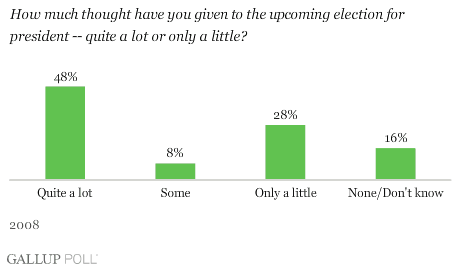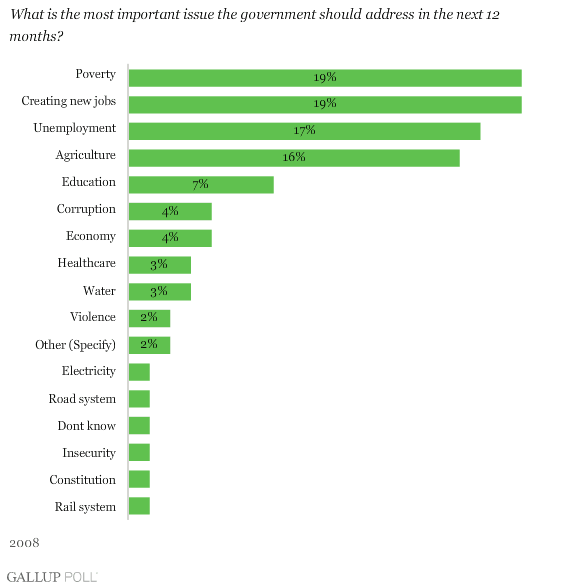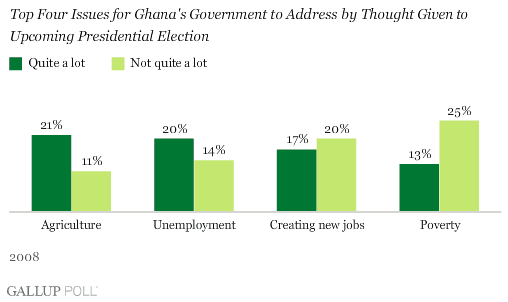WASHINGTON, D.C. -- Ghanaians have long been gearing up for this Sunday's presidential election. In April 2008 when Gallup asked Ghanaians how much thought they had given to the election, nearly one in two (48%) respondents said they had already given it "quite a lot" of thought.

Eight candidates have thrown their hat in to the ring to be Ghana's next president, including Nana Addo Dankwa Akufo-Addo of the incumbent New Patriotic Party and 2004 presidental candidate John Atta-Mills of the National Democratic Congress. The winner must receive more than 50% of the total number of valid votes cast to avoid a runoff, which if needed must be held within 21 days of the election.
When asked to name the most important issue the government should address in the next 12 months, economic issues dominated Ghanaians responses. The most frequently named issues were poverty (19%), job creation (19%), and unemployment (17%). Another 16% of Ghanaians identified agriculture as the most important issue. Taken together, these four issues account for 71% of all issues identified by Ghanaians as most important for the government to address in the next 12 months.

Ghanaians' top four priorities -- poverty, creating new jobs, unemployment, and agriculture -- vary by the amount of thought Ghanaians have given to the coming election. Those who have given it quite a lot of thought identify the same top four issues as Ghanaians do overall, but in reverse order: agriculture (21%), unemployment (20%), creating jobs (17%), and poverty (13%). The relative priorities for those who have given less thought to the election, however, are exactly opposite of those giving quite a lot of thought to the election: poverty (25%), creating jobs (20%), unemployment (14%), and agriculture (11%).

The data suggest that those that have thought quite a lot about the election have a different ordering for actions for the government than those that have not thought quite a lot about it, even though there is consistency in which citizens want the government to address these four issues.
Survey Methods
Results are based on face-to-face interviews with at least 1,000 adults, aged 15 and older, in Ghana in April 2008. For results based on the total sample of national adults, one can say with 95% confidence that the maximum margin of sampling error is ±5 percentage points. In addition to sampling error, question wording and practical difficulties in conducting surveys can introduce error or bias into the findings of public opinion polls.
